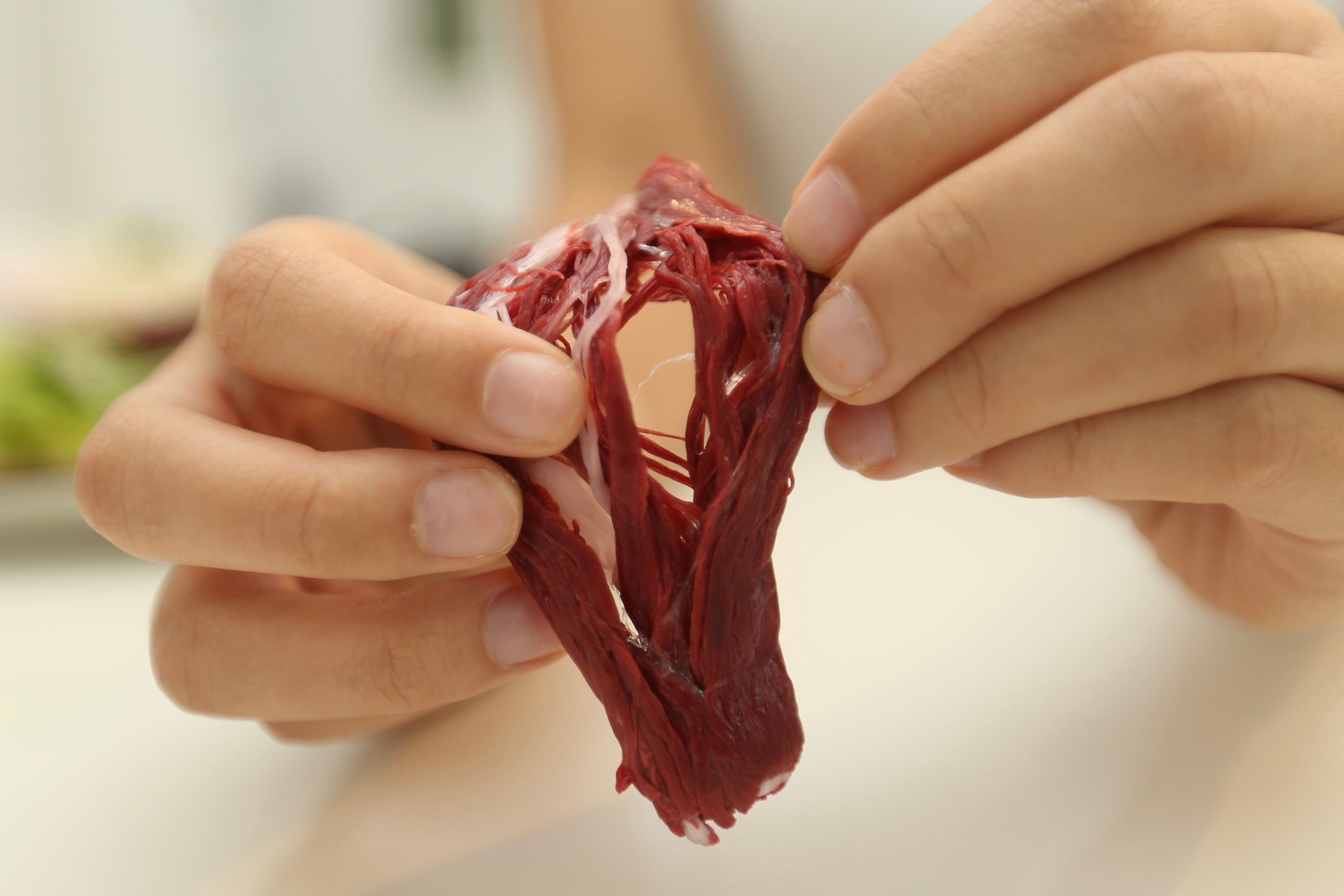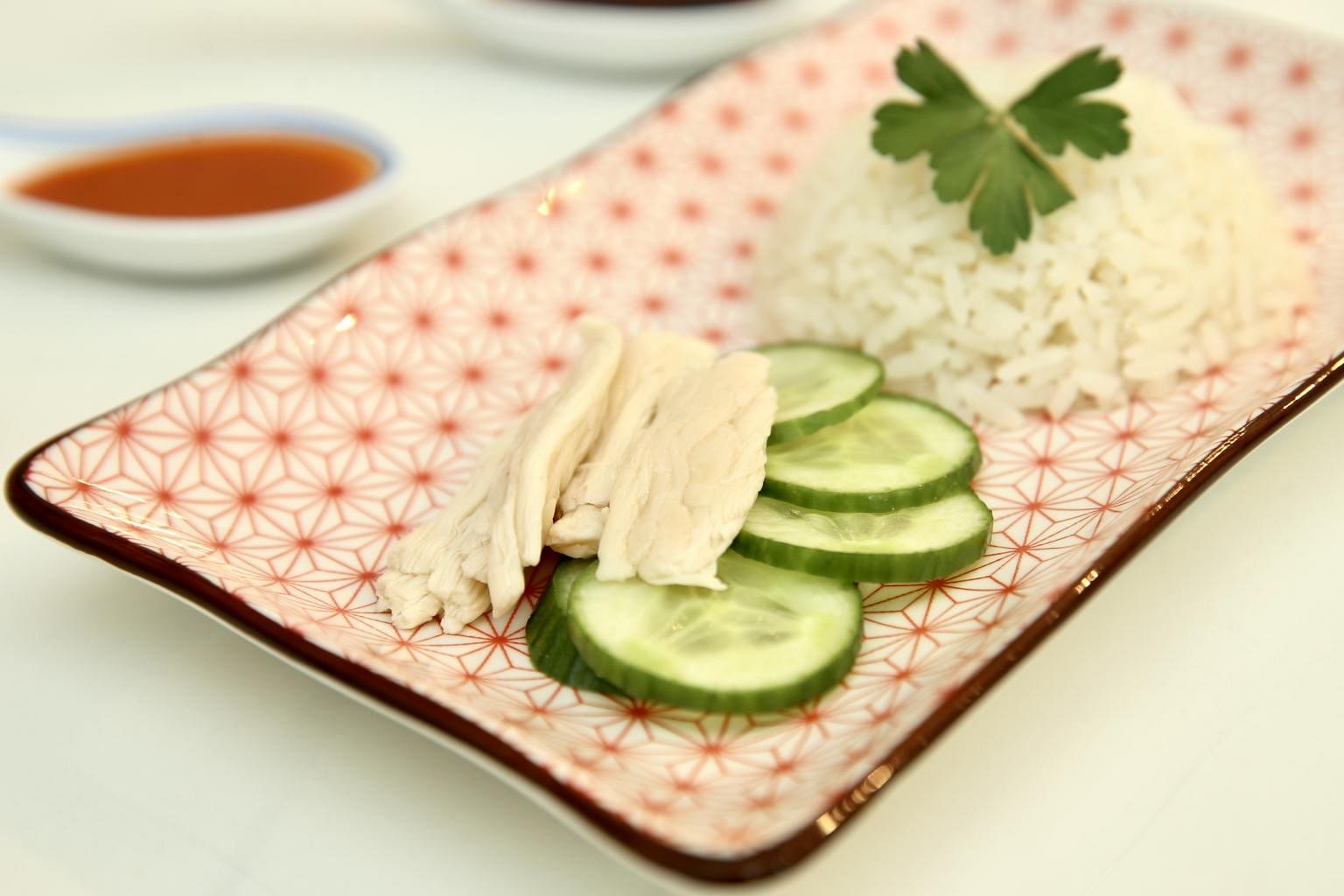Local start-up finds way to create realistic textures for plant-based meat at low cost
Sign up now: Get ST's newsletters delivered to your inbox

(Clockwise from top) Wong Sook Han, general manager of Audra Labs, Shah Ibrahim, director of R&D, Dr Andrew Wan, founder, and Puar Kiat Win, intern at Audra Labs.
ST PHOTO: SAMUEL ANG
SINGAPORE - Streaky plant-based bacon and succulent faux-chicken fillets could soon satisfy the hunger of environmentally conscious Singaporeans, now that a local start-up has ventured into creating meat textures for alternative proteins.
This comes as a slew of plant-based products launched in Singapore over the past two years has placed the country in the spotlight as an alternative proteins hub, amid a growing global awareness of the massive carbon footprint of rearing livestock for food.
The livestock sector produces about 15 per cent of all global greenhouse emissions, according to the United Nations Food and Agriculture Organisation.
The company, known as Audra Labs, is a spin-off from the Agency for Science, Technology and Research (A*Star), where Dr Andrew Wan, who was then a principal research scientist at its Institute of Bioengineering and Nanotechnology, was developing fibres for tissue engineering in his laboratory.
Tissue engineering involves repairing, replacing or regenerating a tissue or organ in the body, often due to disease or injuries.
"To create these fibres, it involves bringing two natural polymers - which are essentially substances that form the materials in living things - into contact, such that they react at the interface. From there, a fibre is then carefully drawn from the interface," said Dr Wan, who is Audra Labs' founder and non-executive director.
This process usually occurs at room temperature, involving mild solvents, he added.
In tissue engineering, the fibres are infused with protein molecules which help to form a scaffold to support cell growth, allowing these cells to proliferate and eventually grow into the tissue of interest, he said.
"It was during the circuit breaker in April 2020 when I realised that the same technique could also be applied for constructing plant-based meat."
Instead of using human proteins, the desired plant-based protein molecules are incorporated as ingredients into the polymer solution, and then pulled into fibres.
"Once we have that, we can then combine or assemble the fibres, which would then become the final product that visually looks and physically feels and tears like meat," he added.
With this vision in mind, Dr Wan founded Audra Labs in June 2020.

Current methods of producing plant-based meat typically involve a process that uses high temperature and pressure to texturise the plant-based proteins - which are usually pea or soya proteins - such that they resemble animal meat, said Dr Wan.
"However, in order to imbue flavouring into the product, it often has to be ground into smaller chunks, and then reassembled later on, explaining why plant-based meat options are often sold in nugget or patty forms," he added.
The company's method of integrating the plant-based proteins and flavours into the fibres makes it a lot more viable to produce whole meat cuts, such as bacon, fillets and steak, noted Dr Wan.
Acknowledging that 3D printing is also able to create meat cuts with the precise amounts of fat, blood and muscles, Dr Wan noted that such a method would typically involve high costs of production when scaled up.
He noted that the company's equipment and processes are "relatively inexpensive" which could help lower the price of plant-based meat, and gain greater market reception.
"As a locally grown start-up, we are aware of how passionate Singaporeans are when it comes to their food. By reproducing the texture and taste of plant-based meat in cuisines which locals are fond of, like chicken rice, we could perhaps make a difference in promoting consumer acceptance towards alternative meat products," he added.

The texturing method could also be applied to other types of alternative proteins such as cell-cultured meat - made from cultivating animal cells in a laboratory - owing to the versatility of Audra Labs' texturing techniques, an area which the company will eventually venture into, said Dr Wan.
Dr Shah Ibrahim, director of research and development at Audra Labs, told The Straits Times that the company is working with several multinationals in the alternative protein space to incorporate these meat textures into their plant-based meat products.
The first product launch can be expected by early or mid-next year, he added.
"Currently, we're focusing on improving the flavour and bite of these plant-based meat cuts, so that we can more closely replicate the experience of biting into animal meat," said Dr Shah.
Other companies are busy staking a market share.

Californian start-up Eat Just's Good Meat division received approval in December 2020 from the Singapore Food Agency to sell cell-cultured bite-size chicken nuggets.
More of its cultivated meat products have been approved for sale, including chicken breast, which will be available this year at some hawker centre stalls, including Loo's Hainanese Curry Rice in Tiong Bahru.
Singapore-based food tech company Next Gen Foods launched its plant-based chicken brand Tindle at several restaurants in March last year. The company recently raised US$100 million (S$135 million) in funding this month, with its chicken making its debut in the United States.
The start-up is opening a research centre in partnership with the Food Tech Innovation Centre in Singapore later this year to focus on research and development as well as product innovation.


